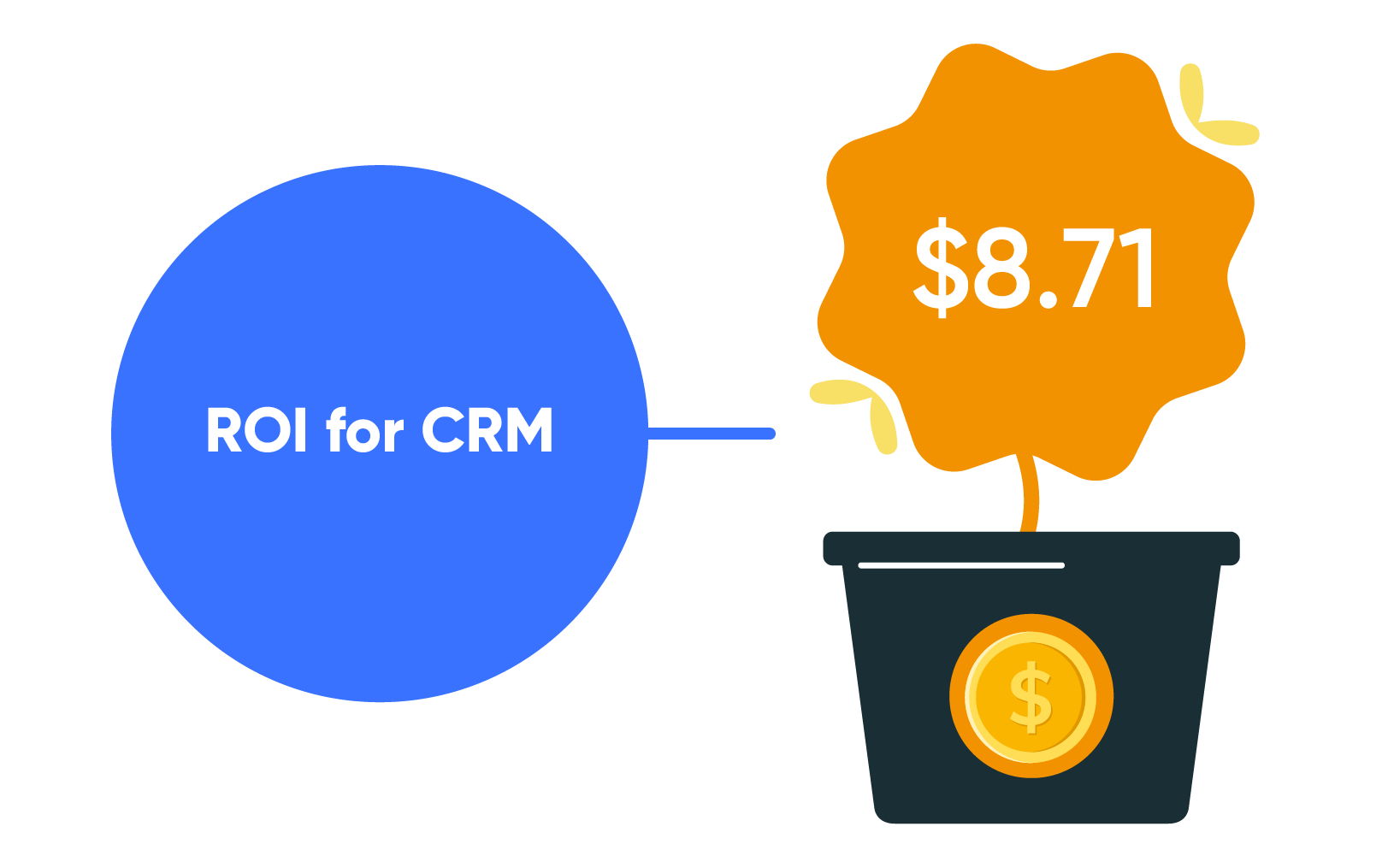Business interactions are more than mere exchanges; they're stepping stones to opportunities. But how do businesses ensure they're capturing every bit of this value? It all circles back to an often understated hero: the CRM system.

This isn't just another tool—it's the central nervous system of many thriving enterprises.
When a CRM seamlessly integrates with everyday platforms, especially a very well-known one like Microsoft Outlook, it becomes more than a management tool. It's a strategy enabler, turning every interaction into a potential goldmine.
Let's journey deeper into the realm of CRMs, shedding light on their important roles in the B2B processes. Additionally, how the best B2B CRM software, when paired with Outlook, is a combination that sets businesses on a trajectory for success and efficiency.

Table of Contents:
The B2B Landscape Today
Challenges Faced by B2B Enterprises
Choosing the Best B2B CRM Software
eWay-CRM: A User-Friendly Powerhouse for B2B Operations
The Integral Role of an Adaptable B2B CRM
The B2B Landscape Today
The world of business-to-business interactions has evolved rapidly. This largely has been spurred on by advancements in technology and changing market dynamics.
Today's B2B interactions are characterized by several defining features:
- Multichannel Communication: Businesses are no longer restricted to traditional communication avenues. Emails, instant messaging, video conferences, and social media have become integral parts of the B2B communication toolkit, necessitating tools that can manage and make sense of these diverse channels.
- Global Operations: B2B companies frequently deal with partners, suppliers, and clients scattered across the globe. This geographical spread means varied time zones, differing business cultures, and multiple regulatory environments. This increases the need for efficient management even more.
- Rising Customer Expectations: As information becomes increasingly accessible, clients expect faster response times, personalized solutions, and a deeper understanding of their needs. Meeting these expectations requires a system that can provide insights and facilitate timely actions.
- Real-time Information Access: The pace of B2B transactions has increased. Decisions are often made in real-time, driven by immediate access to data. This calls for systems that can provide quick insights and updates.
- Collaborative Operations: Modern B2B operations lean heavily on collaboration, both within teams and with external partners. Having a central hub where information can be shared, updated, and collaborated upon is invaluable.
Challenges Faced by B2B Enterprises
The intricacies of B2B interactions lead to unique challenges that require tailored solutions. Let's discuss some primary organizational needs and the pain points they often encounter:
Need for Streamlined Communication:
- Pain Point: With multiple communication channels in use, information can get scattered, leading to miscommunication and missed opportunities.
- Why a CRM Matters: A CRM system organizes all communications, ensuring that every email inquiry or potential lead is systematically categorized and accessible.
Efficient Lead Management:
- Pain Point: Without a centralized system, tracking potential clients or leads becomes chaotic, resulting in overlooked opportunities or redundant efforts.
- CRM Solution: CRM tools can automate lead management, offering reminders, categorization, and status updates to ensure no potential client slips through the cracks.
Data-Driven Decision Making:
- Pain Point: Businesses often struggle to gather and analyze data to drive their strategies, which can lead to uninformed decisions.
- CRM Relevance: With built-in analytics, thanks to integrations such as with Power BI, CRMs provide actionable insights, enabling businesses to strategize based on concrete data.
Team Collaboration and Coordination:
- Pain Point: Disparate systems and lack of centralized information can lead to inefficiencies and redundancy within teams.
- CRM Solution: A CRM serves as a shared platform, enhancing collaboration and ensuring all team members are on the same page.
Scalability and Growth:
- Pain Point: As B2B companies grow, their operations can become more complex, making manual management processes inefficient.
- How CRM Helps: CRMs are designed to scale, accommodating growing databases, increased customer interactions, and expanding teams without compromising efficiency.
By addressing these needs and mitigating associated pain points, CRM systems emerge as essential tools for B2B companies. They aren't just about contact management; they're about holistic business management in an interconnected world.
Choosing the Best B2B CRM Software

Selecting the best B2B CRM software is paramount to leveraging its capabilities fully. Here's a guide to making an informed decision:
User Experience:
Steep Learning Curve vs. Intuitiveness: The adoption rate of any tool largely depends on its ease of use. An intuitive interface, reminiscent of familiar platforms like Outlook, can drastically reduce the learning curve, ensuring higher user adoption and efficiency.
Integration Capacity:
Outlook and Beyond: In a B2B setting, where emails play a pivotal role, the ability to integrate seamlessly with platforms like Microsoft Outlook is crucial. For instance, a CRM that can integrate directly into Outlook, like eWay-CRM, ensures a streamlined workflow without juggling multiple platforms.
Moreover, integrations with services like Zapier can expand the CRM's capabilities, connecting it to over 2,000 other apps.
Feature Complexity:
Simplicity Meets Functionality: While a CRM should be feature-rich, it should not overwhelm. The best tools provide the option to use basic features and delve into more complex functionalities as the need arises.
Mobility and Remote Accessibility:
Stay Connected, Always: With teams often dispersed or on the move, a CRM should offer cloud-based and mobile solutions, ensuring access from anywhere and on any device. This feature supports remote work and ensures real-time data access, vital for prompt decision-making.
Analytical Capabilities:
Easy Insights or a Maze of Data?: A good CRM should offer clear and concise analytics. Businesses shouldn't need a separate team of data analysts to glean insights from their CRM data.
Pricing and Scalability:
Tailored to Your Needs: A flexible pricing model, which allows starting free and upgrading as required, caters to businesses of all sizes. Moreover, the CRM should scale with the business, accommodating growth without hitches.
Module Diversity:
All-round Functionality: B2B operations require varied modules—from sales tracking to project management and email marketing. Ensure the CRM offers a holistic suite to cater to all business aspects.
Choosing a CRM shouldn't be a hasty decision. It's an investment that shapes business operations, customer relations, and overall efficiency. Hence, understanding what to look for can make all the difference.
eWay-CRM: A User-Friendly Powerhouse for B2B Operations

With the vast number of CRM options available, sometimes the best option is a CRM that blends seamlessly with the reliable tools you already use. An example of this is eWay-CRM and its standout feature of seamless integration with Microsoft Outlook.
By transforming the familiar environment of Outlook into a robust CRM platform, businesses can manage emails, meetings, contacts, and notes without the need to hop between tools. This integration offers an unparalleled level of convenience, especially for businesses deeply entrenched in the Microsoft ecosystem.
“For a start, businesses don't have to confront a steep learning curve. The platform is designed to be intuitive, mirroring the simplicity of Outlook.”
And in a world where mobility is paramount. eWay-CRM doesn't just tie businesses to their desktops; it extends its functionalities to iOS, Android, and web platforms. This cross-platform presence ensures that teams can stay productive and connected, no matter where they are working from.
eWay-CRM is also tailored to business needs. For a start, businesses don't have to confront a steep learning curve. The platform is designed to be intuitive, mirroring the simplicity of Outlook.
But beneath its user-friendly interface lies a wealth of features – from project management modules to sales tracking tools – ensuring that as businesses grow and their needs evolve, eWay-CRM scales with them.
eWay-CRM also provides affordability without compromise. eWay-CRM recognizes that businesses have varying budgetary constraints. With its "start free, upgrade when ready" philosophy, businesses can tap into a powerful CRM tool without breaking the bank.
Moreover, its scalable pricing ensures that as businesses require more advanced features, they're available without a hefty price tag.
The Integral Role of an Adaptable B2B CRM
The right CRM solution not only serves as a tool but as an ally – streamlining operations, enhancing communications, and driving productivity.
The integration capabilities of a CRM, particularly with platforms like Microsoft Outlook, offer more than just convenience; they bring cohesion and unity to business operations, ensuring that every email or interaction becomes a potential lead.
As we've explored, factors like mobility, intuitive design, robust support, and affordability are paramount, and in this regard, solutions like eWay-CRM shine brightly.
But beyond the features and integrations, the real strength of a CRM lies in its ability to adapt and grow with a business, offering solutions that evolve with changing needs.











